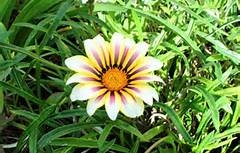Bột nghệ và nghệ tươi có nhiều công dụng trong điều trị bệnh, làm đẹp, rất có lợi cho sức khỏe. Tuy nhiên, nếu lạm dụng hoặc dùng không đúng cách sẽ gây thủng dạ dày, sỏi thận, sỏi mật chứ chẳng đùa!Bột nghệ được ca tụng là một loại thần dược có thể trị rất nhiều loại bệnh trong đó có đau dạ dày, ăn không tiêu, trị bệnh gan thận, phụ khoa, giúp đào thải chất độc… Ngoài ra, rất tốt cho làm đẹp và cũng có thể làm gia vị cho các món ăn. Trước những lợi ích không gì sánh bằng ấy, nhiều người đã tin dùng một cách vô tội vạ, thậm chí là chẳng mắc bệnh gì cũng uống nhằm bồi bổ cơ thể.  Nghệ được pha chế để uống (Ảnh minh họa) Nghệ được pha chế để uống (Ảnh minh họa)Có cung ắt có cầu, nắm được tâm lý của khách hàng, rất nhiều đối tượng đã kinh doanh loại thực phẩm này. Đầy rẫy trên mạng xã hội các tin cung cấp bột nghệ sỉ và lẻ với những lời quảng cáo có cánh về chất lượng cũng như công dụng thần kỳ của bột nghệ, khiến nhiều người càng tin rằng, uống nhiều bột nghệ vừa trị được bệnh vừa tốt cho sức khỏe. Những người mua cứ nghe đến “tinh bột nghệ” là bị mê hoặc, coi như một thứ “thần dược” chữa bách bệnh viêm, nhất là các loại viêm trong đường tiêu hóa. Theo PGS.TS Phùng Hòa Bình, một trong những tác nhân chủ yếu gây bệnh viêm dạ dày, viêm loét dạ dày là vi khuẩn HP. Vì vậy, muốn điều trị bệnh thì cần phải dùng thuốc kháng sinh diệt khuẩn HP. Còn bột nghệ chỉ có tính kháng khuẩn, chống viêm rất ít và không có tác dụng giảm tiết dịch vị dạ dày. Hơn nữa, bột nghệ chỉ là sản phẩm hỗ trợ điều trị chứ không phải là thuốc. Vì vậy, người bệnh chỉ dùng đơn độc bột nghệ thì hiệu quả sẽ rất thấp mà cần phải phối hợp với các loại thuốc khác đặc trị bệnh.  Tinh bột nghệ được bán khắp các trang mạng (Ảnh minh họa) Tinh bột nghệ được bán khắp các trang mạng (Ảnh minh họa)Cục Quản lý Thực phẩm và Dược phẩm Hoa Kỳ (FDA) cũng đã khuyến cáo không nên coi nghệ là thần dược điều trị bất cứ loại bệnh gì, việc dùng bừa bãi có thể gây nên tác động khó chịu, làm tổn hại các cơ quan, thậm chí là nguy hiểm đến tính mạng. Đã có nhiều bệnh nhân nguy kịch vì dùng bột nghệ không đúng cách, điển hình như trường hợp của bệnh nhân nữ (38 tuổi) nhập viện trong tình trạng dạ dày bị đau như dao đâm. Kết quả nội soi và chụp X-quang cho thấy bệnh nhân bị loét dạ dày. Nữ bệnh nhân này cho biết ở nhà chị đã uống tinh bột nghệ điều trị đau dạ dày khoảng hai tuần trở lại đây. Một bệnh nhân L quê Nam Định bị viêm loét dạ dày hơn 2 năm. Thời gian đầu chị L sử dụng thuốc theo kê đơn của bác sĩ. Hết thuốc, chị đã sử dụng bột nghệ để điều trị bệnh theo lời mách bảo của một số người. Thấy không còn đau nên chị L nghĩ mình đã khỏi bệnh viêm dạ dày do sử dụng bột nghệ pha mật ong. Từ đó, chị chỉ dùng bột nghệ để điều trị bệnh của mình mà không cần đến thuốc kê đơn của bác sĩ. Tuy nhiên, không lâu sau đó chị L bị đau trở lại và đau hơn những lần trước. Khi đi xét nghiệm thì bác sĩ đã chẩn đoán chị ở tình trạng viêm loét nghiêm trọng, chậm chút nữa sẽ dẫn đến bị thủng dạ dày. Và còn rất nhiều trường hợp vì sử dụng bột nghệ vô tội vạ nên lãnh nhận hậu quả tiền mất tật mang. Dùng bột nghệ lâu ngày sẽ gây ra những hậu quả gì? Nguyên nhân chính là chất curcumin trong nghệ kích thích túi mật tiết ra nhiều mật hơn. Điều này một mặt có thể cải thiện khả năng tiêu hóa, nhưng mặt khác, vì sự tăng tiết mật này, những người đã bị sỏi mật hoặc các vấn đề khác gây tắc ống mật, viêm túi mật hoặc hình thành sỏi. Việc sử dụng nghệ nhiều còn có thể làm xuất hiện sỏi thận, đặc biệt ở những người vốn đã có nguy cơ. Khi dùng nhiều nghệ, lượng oxalate trong nước tiểu sẽ cao hơn những người không dùng, nhưng nếu lượng oxalate quá cao thì có thể kết hợp với canxi và hình thành sỏi thận. Những bệnh nhân có nguy cơ mắc bệnh dạ dày hoặc đang có mầm mống bệnh trong người mà sử dụng nghệ liên tục sẽ có nguy cơ dẫn đến viêm loét dạ dày nghiêm trọng, nếu không kịp chữa trị có thể gây thủng dạ dày, ung thư dạ dày. *Theo PGS.TS Phùng Hòa Bình, một trong những tác nhân chủ yếu gây bệnh viêm dạ dày, viêm loét dạ dày là vi khuẩn HP. Vì vậy, muốn điều trị bệnh thì cần phải dùng thuốc kháng sinh diệt khuẩn HP. Phương thức điều trị bệnh là vừa diệt vi khuẩn vừa bao vết loét, tái tạo tổ chức loét để làm liền vết thương, đồng thời giảm axít của dịch vị dạ dày.* *Còn bột nghệ có tính kháng khuẩn, chống viêm rất ít và không có tác dụng giảm tiết dịch vị dạ dày. Hơn nữa, bột nghệ chỉ là sản phẩm hỗ trợ điều trị chứ không phải là thuốc. Vì vậy, người bệnh chỉ dùng đơn độc bột nghệ thì hiệu quả sẽ rất thấp mà cần phải phối hợp với các loại thuốc khác đặc trị bệnh.* TURMERICOTHER NAME(S): Curcuma, Curcuma aromatica, Curcuma domestica, Curcumae longa, Curcumae Longae Rhizoma, Curcumin, Curcumine, Curcuminoid, Curcuminoïde, Curcuminoïdes, Curcuminoids, Halada, Haldi, Haridra, Indian Saffron, Nisha, Pian Jiang Huang, Racine de Curcuma, Radix Curcumae, Rajani, Rhizoma Cucurmae Longae, Safran Bourbon, Safran de Batallita, Safran des Indes, Turmeric Root, Yu Jin. Overview InformationTurmeric is a spice that comes from the turmeric plant. It is commonly used in Asian food. You probably know turmeric as the main spice in curry. It has a warm, bitter taste and is frequently used to flavor or color curry powders, mustards, butters, and cheeses. But the root of turmeric is also used widely to make medicine. It contains a yellow-colored chemical called curcumin, which is often used to color foods and cosmetics.
Turmeric is used for arthritis, heartburn (dyspepsia), joint pain, stomach pain, Crohn's disease and ulcerative colitis, bypass surgery, hemorrhage, diarrhea, intestinal gas, stomach bloating, loss of appetite, jaundice, liver problems, Helicobacter pylori (H. pylori) infection, stomach ulcers, irritable bowel syndrome (IBS), gallbladder disorders, high cholesterol, a skin condition called lichen planus, skin inflammation from radiation treatment, and fatigue.
It is also used for headaches, bronchitis, colds, lung infections, hay fever, fibromyalgia, leprosy, fever, menstrual problems, itchy skin, recovery after surgery, and cancers. Other uses include depression, Alzheimer's disease, swelling in the middle layer of the eye (anterior uveitis), diabetes, water retention, worms, an autoimmune disease called systemic lupus erythematosus (SLE), tuberculosis, urinary bladder inflammation, and kidney problems.
Some people apply turmeric to the skin for pain, ringworm, sprains and swellings, bruising, leech bites, eye infections, acne, inflammatory skin conditions and skin sores, soreness inside of the mouth, infected wounds, and gum disease.
Turmeric is also used as an enema for people with inflammatory bowel disease.
In food and manufacturing, the essential oil of turmeric is used in perfumes, and its resin is used as a flavor and color component in foods.
Don't confuse turmeric with Javanese turmeric root (Curcuma zedoaria). How does it work?Turmeric contains the chemical curcumin. Curcumin and other chemicals in turmeric might decrease swelling (inflammation). Because of this, turmeric might be beneficial for treating conditions that involve inflammation. Uses & Effectiveness?Possibly Effective for- Hay fever. Taking curcumin, a chemical found in turmeric, seems to reduce hayfever symptoms such as sneezing, itching, runny nose, and congestion.
- Depression. Most available research shows that taking curcumin, a chemical found in turmeric, reduces depression symptoms in people already using an antidepressant.
- High cholesterol. Turmeric seems to lower levels of blood fats called triglycerides. The effects of turmeric on cholesterol levels are conflicting. There are many different turmeric products available. It is not known which ones work best.
- Osteoarthritis. Some research shows that taking turmeric extracts, alone or in combination with other herbal ingredients, can reduce pain and improve function in people with knee osteoarthritis. In some research, turmeric worked about as well as ibuprofen for reducing osteoarthritis pain. But it does not seem to work as well as diclofenac for improving pain and function in people with osteoarthritis.
- Itching (pruritus). Research suggests that taking turmeric by mouth three times daily for 8 weeks reduces itching in people with long-term kidney disease. Also, early research suggests that taking a specific combination product (C3 Complex, Sami Labs LTD) containing curcumin plus black pepper or long pepper daily for 4 weeks reduces itching severity and improves quality of life in people with chronic itching caused by mustard gas.
Possibly Ineffective for- Stomach ulcers. Some research suggests that taking turmeric three times daily for 8 weeks does not improve stomach ulcers. Also, taking powdered turmeric four times daily for 6 weeks seems to be less effective than taking a conventional antacid.
- Skin problems related to radiation cancer treatments. Curcumin is a chemical in turmeric. Taking curcumin does not seem to prevent skin problems during radiation treatment.
Insufficient Evidence for- Alzheimer's disease. Early research shows that taking curcumin, a chemical found in turmeric, daily for 6 months does not benefit people with Alzheimer's disease.
- Eye inflammation (anterior uveitis). Early research suggests that taking curcumin, a chemical found in turmeric, might improve symptoms of long-term inflammation in the middle layer of the eye.
- Mental function. Curcumin is a chemical in turmeric. Some research shows that curcumin can improve memory and attention in older adults. Some of these adults showed signs of mild mental decline before taking curcumin. But other research shows that curcumin does not improve mental function in older people who don’t show signs of mental decline.
- Colorectal cancer. Early research suggests that taking a specific turmeric product containing turmeric extract and Javanese turmeric extract (P54FP, Phytopharm plc., Godmanchester, United Kingdom) might stabilize some measures of colon cancer. There is also early evidence that taking curcumin, a chemical found in turmeric, daily for 30 days can reduce the number of precancerous glands in the colon of people at high risk of cancer.
- Bypass surgery (coronary artery bypass graft surgery). Early research suggests that taking curcuminoids, which are chemicals found in turmeric, starting 3 days before surgery and continuing for 5 days after surgery can lower the risk of a heart attack following bypass surgery.
- A type of inflammatory bowel disease called Crohn's disease. Some evidence suggests that taking curcumin, a chemical found in turmeric, daily for one month can reduce bowel movements, diarrhea, and stomach pain in people with Crohn's disease.
- Diabetes. Early research shows that taking turmeric might prevent diabetes in people with prediabetes.
- Stomach upset (dyspepsia). Some research shows that taking turmeric by mouth four times daily for 7 days might help improve an upset stomach.
- Gum disease (gingivitis). Early research suggests that using a turmeric mouthwash is as effective as a drug-therapy mouthwash for reducing gum disease and bacteria levels in the mouth of people with gingivitis.
- Stomach ulcers caused by Helicobacter pylori (H pylori) infection. Early research suggests that taking turmeric daily for 4 weeks is less effective than conventional treatment for eliminating certain bacteria (H. pylori) that can cause stomach ulcers.
- Irritable bowel syndrome (IBS). Early research suggests that taking a turmeric extract (Cynara Turmeric, Lichtwer Pharma) daily for 8 weeks reduces the occurrence of IBS in people with IBS who are otherwise healthy.
- Joint pain. Research shows that taking a specific combination product (Instaflex Joint Support, Direct Digital, Charlotte, NC) containing turmeric and other ingredients three times daily for 8 weeks reduces the severity of joint pain. But it does not appear to help joint stiffness or improve joint function.
- Skin rash (Lichen planus). Taking a certain product (Curcumin C3 Complex, Sabinsa Corp) containing chemicals found in turmeric three times daily for 12 days can reduce skin irritation caused by lichen planus.
- Prostate cancer. Research suggests that taking a formula containing broccoli powder, turmeric powder, pomegranate whole fruit powder, and green tea extract three times daily for 6 months prevents an increase in prostate specific antigen (PSA) levels in men with prostate cancer. PSA levels are measured to monitor how well prostate cancer treatment is working. However, it's not yet known if this formula, or turmeric alone, reduces the risk of prostate cancer progression or recurrence.
- Inflammation in the mouth and/or esophagus from radiation treatment. Early research suggests that swishing a turmeric solution in the mouth six times daily for 6 weeks reduces the risk of inflammation in the mouth and/or esophagus caused by radiation treatment in people with head and neck cancer.
- Rheumatoid arthritis (RA). Early research suggests that curcumin, a chemical found in turmeric, might reduce some RA symptoms, including pain, morning stiffness, walking time, and joint swelling. Other research shows that taking a turmeric product (BCM-95, Arjuna Natural Extracts, India) twice daily reduces RA symptoms more than conventional medication.
- Skin cancer. Early research shows that applying a turmeric ointment might help to relieve odor and itching caused by cancer-related wounds.
- Recover from surgery. Early research suggests that taking curcumin, a chemical found in turmeric, daily for up to one week after surgery can reduce pain, fatigue, and the need for pain medications.
- An inflammatory disease called systemic lupus erythematosus (SLE). Early research suggests that taking turmeric by mouth three times daily for 3 months can reduce blood pressure and improve kidney function in people with kidney inflammation (lupus nephritis) caused by systemic lupus erythematosus.
- Tuberculosis. Early research suggests that taking a product containing turmeric and Tinospora cordifolia can reduce bacteria levels, improve wound healing, and reduce liver toxicity caused by antituberculosis therapy in people with tuberculosis who are receiving antituberculosis therapy.
- A type of inflammatory bowel disease called ulcerative colitis. Some early research suggests that taking curcumin, a chemical found in turmeric, daily for up to 6 months can reduce symptoms and the recurrence of ulcerative colitis when used in combination with conventional treatments. Other research shows that taking turmeric extract as an enema might help people with this condition.
- Acne.
- Jaundice.
- Hepatitis.
- Diarrhea.
- Fibromyalgia.
- Liver and gallbladder problems.
- Headache.
- Menstrual problems.
- Pain.
- Ringworm.
- Bruising.
- Other conditions.
More evidence is needed to rate turmeric for these uses. Side Effects & SafetyTurmeric is LIKELY SAFE when taken by mouth or applied to the skin appropriately for up to 8 months.
Turmeric is POSSIBLY SAFE when it is used as an enema or a mouthwash in the short-term.
Turmeric usually does not cause significant side effects. But some people can experience stomach upset, nausea, dizziness, or diarrhea.
In one report, a person who took very high amounts of turmeric, over 1500 mg twice daily, experienced a dangerous abnormal heart rhythm. However, it is unclear if turmeric was the actual cause of this side effect. Until more is known, avoid taking excessively large doses of turmeric. Special Precautions & Warnings:Pregnancy and breast-feeding: During pregnancy and while breast-feeding, turmeric is LIKELY SAFE when taken by mouth in amounts commonly found in food. However, turmeric is LIKELY UNSAFE when taken by mouth in medicinal amounts during pregnancy. It might promote a menstrual period or stimulate the uterus, putting the pregnancy at risk. Do not take medicinal amounts of turmeric if you are pregnant. There is not enough information to rate the safety of medicinal amounts of turmeric during breast-feeding. It is best not to use it.
Gallbladder problems: Turmeric can make gallbladder problems worse. Do not use turmeric if you have gallstones or a bile duct obstruction.
Bleeding problems: Taking turmeric might slow blood clotting. This might increase the risk of bruising and bleeding in people with bleeding disorders.
Diabetes: Curcumin, a chemical in turmeric, might decrease blood sugar in people with diabetes. Use with caution in people with diabetes as it might make blood sugar too low.
A stomach disorder called gastroesophageal reflux disease (GERD): Turmeric can cause stomach upset in some people. It might make stomach problems such as GERD worse. Do not take turmeric if it worsens symptoms of GERD.
Hormone-sensitive condition such as breast cancer, uterine cancer, ovarian cancer, endometriosis, or uterine fibroids: Turmeric contains a chemical called curcumin, which might act like the hormone estrogen. In theory, turmeric might make hormone-sensitive conditions worse. However, some research shows that turmeric reduces the effects of estrogen in some hormone-sensitive cancer cells. Therefore, turmeric might have beneficial effects on hormone-sensitive conditions. Until more is known, use cautiously if you have a condition that might be made worse by exposure to hormones.
Infertility: Turmeric might lower testosterone levels and decrease sperm movement when taken by mouth by men. This might reduce fertility. Turmeric should be used cautiously by people trying to have a baby.
Iron deficiency: Taking high amounts of turmeric might prevent the absorption of iron. Turmeric should be used with caution in people with iron deficiency.
Surgery: Turmeric might slow blood clotting. It might cause extra bleeding during and after surgery. Stop using turmeric at least 2 weeks before a scheduled surgery. Interactions?Moderate InteractionBe cautious with this combination! - Medications that slow blood clotting (Anticoagulant / Antiplatelet drugs) interacts with TURMERIC
Turmeric might slow blood clotting. Taking turmeric along with medications that also slow clotting might increase the chances of bruising and bleeding.<br /><br /> Some medications that slow blood clotting include aspirin, clopidogrel (Plavix), diclofenac (Voltaren, Cataflam, others), ibuprofen (Advil, Motrin, others), naproxen (Anaprox, Naprosyn, others), dalteparin (Fragmin), enoxaparin (Lovenox), heparin, warfarin (Coumadin), and others. Dosing- Allergic rhinitis (hayfever. 500 mg of curcumin, a chemical in turmeric, has been used daily for 2 months.
- Depression. 500 mg of curcumin, a chemical in turmeric, has been taken twice daily, alone or along with 20 mg of fluoxetine daily, for 6-8 weeks.
- For high cholesterol: 1.4 grams of turmeric extract in two divided doses daily for 3 months has been used.
- For itching (pruritus): 1500 mg of turmeric in three divided doses daily for 8 weeks has been used. Also, a specific product containing turmeric extract (C3 Complex, Sami Labs LTD) plus black pepper or long pepper has been used daily for 4 weeks.
- For osteoarthritis: 500 mg of a non-commercial turmeric product four times daily for 4-6 weeks has been used. 500 mg of a specific turmeric extract (Turmacin, Natural Remedies Pvt. Ltd.) has been used twice daily for 6 weeks. 500 mg of a specific turmeric extract (Meriva, Indena) containing turmeric and phosphatidylcholine has been used twice daily for 2-3 months. Other combination products have also been used. A specific product containing 1050 mg of turmeric extract and 450 mg of boswellia extract (Curamin, EuroPharma USA) has been used for 12 weeks.
CHILDREN
BY MOUTH: - For high cholesterol: 1.4 grams of turmeric extract in two divided doses daily for 3 months has been used in children at least 15 years-old.
Turmeric (Curcumin)In the U.S., turmeric is best known as a spice. It's one of the main components of curry powder. In India and other parts of Asia, turmeric is used to treat many health conditions. It is believed to have anti-inflammatory, antioxidant, and perhaps even anticancer properties. Why do people take turmeric?In lab tests, curcumin seems to block the growth of certain kinds of tumors. One study showed that turmeric extract containing curcumin could -- in some cases -- stabilize colorectal cancer that wasn't helped by other treatments. But more research is needed. But it’s important to keep in mind that most of these studies have been done in the laboratory. Researchers haven’t yet conducted significant studies on the benefits of turmeric and curcumin. So it's too early to say what health benefits turmeric might have. How much turmeric should you take?Turmeric is an unproven treatment, though it has years of traditional use and some preliminary convincing research. There is no standard dosage. Ask your health care provider for advice. Can you get turmeric naturally from foods?Turmeric, as a spice, is a common ingredient in Indian cooking. The spice (and supplement) comes from the underground stems (rhizomes) of the turmeric plant. What are the risks of taking turmeric?- Side effects. Turmeric is generally safe. It can cause nausea and diarrhea, especially in high doses or after long-term use. It might also pose a risk of ulcers in high doses. As a topical treatment, it can cause skin irritation. Caution is advised when turmeric is taken by people known to have gallstones; consult your health careprovider first.
- Risks. Pregnant women should not use turmericsupplements. Talk to a doctor before using turmeric supplements regularly if you have any medical conditions, including gallbladder orkidney disease, bleeding disorders, diabetes, or immunity problems. Since turmeric can potentially increase bleeding, stop taking it at least two weeks before any surgery.
- Interactions. If you take any medicines regularly, talk to your doctor before you start using turmericsupplements. They could interact with medicines like aspirin, NSAID painkillers, statins, diabetes drugs, blood pressure medicines, and blood thinners. They might also interact with supplements that decrease clotting, like ginkgo, ginseng, and garlic.
Given the lack of evidence about its safety, children and women who are breastfeeding should only use turmeric supplements if a doctor recommends it.
.Bluesea chuyen |

 Nghệ được pha chế để uống (Ảnh minh họa)
Nghệ được pha chế để uống (Ảnh minh họa)



















